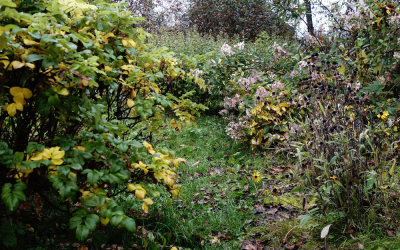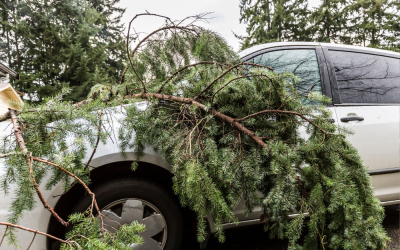The role of a tree surgeon (or arborist) is to cultivate and manage trees and other woody perennials through pruning, felling and replanting. A tree surgeon might be called upon to perform -quite literally- “surgery” on a tree with damage or disease to it, or to fell part of a tree, for instance if its branches become tangled in a powerline. Elsewhere, they bring aesthetic benefits to the surrounding environment. It’s an exciting job, but not without serious risks.
Tree Surgeon: A Dangerous Profession
Work in arboriculture can be perilous: according to the HSE website 24 tree surgeons died within the last decade – mainly a result of chainsaw accidents, falling from height or being struck by falling trees or timber – while nearly 1,400 sustained an injury.
The Risks Involved
Accidents such as these can have a devastating effect on tradespeople and their families. Injured tree surgeons are also likely to be self-employed – meaning little protection in terms of sick pay. Depending on the circumstances, they may also be facing a court case in addition to their loss of livelihood and what may be a long process of recovery. In some cases, it might have long term effects on their ability to work in general.
Health and Safety
In terms of direct protection against such events, the HSE site advises that employers (or the employee in question, if self-employed) ensure that the proper training and competency measures are put in place.
The Right Training
In addition to essential health and safety training, tree surgeons should hold NPTC certifications for the use of chainsaws. Additional training and qualifications are also advised, with several governing UK bodies acting as providers, including the Arboricultural Association, Lantra and City and Guilds.
Permissions and Licenses
Tree surgeons must acquire a tree felling licence and ensure their work is covered by an exemption from the licensing requirement. These include trees in orchards, gardens and certain other locales in addition to saplings or nuisance trees and are issued by the Forestry commission (England and Scotland) the Forest Service (Northern Ireland) and Natural Resources (Wales). Any business producing natural waste should also get waste management and waste carrier licence, depending on the amount of waste material they produce, store, burn or spread.
The Right Equipment
Tree surgeons need the right equipment in order to stay safe and work effectively. In addition to proper control measures for tree surgeons working at height, correct training in the use of machinery such as chainsaws should be provided in addition to protective clothing and ear defenders. Additionally, it is important for lone workers to make themselves known to their employers, supplying medical history and personal details in case of an accident. Tree surgery workers should take measures against equipment theft, taking care not to leave their machinery unsupervised, especially not in named vans overnight.
Insurance Matters
Other forms of protection come in the form of insurance: public liability insurance is the form most used by those in the profession in the unlikely event their work may cause injury to a client or to their property (this should not be in the case, especially with a properly trained and experienced professional). While this isn’t a legal requirement, a number of other forms are – such as employer’s liability (for those with employers or subcontractors) and professional indemnity. In the event of injury, personal accident cover may also be considered.
Protecting our Trees
Prior to any work being carried out on a tree, workers must ensure that it is not covered by a tree protection order (TPO) or based in a special conservation or scientific area. Tree work permissions are usually granted by the local authority.
Protecting our Tree Surgeons
Tree surgeons have a range of responsibilities – from enhancing our surroundings to preventing accidents caused by partially felled trees – but their main one is to take care of trees and ensure that they thrive for longer. Tree surgery often involves physically taxing work in dangerous conditions – but preventative measures can be taken to ensure that workers can carry out their work as safely as possible.
In need of an experienced tree surgeon in Manchester? With over 30 years’ combined experience, Elm House Tree Services are qualified specialists who offer competitive prices combined with reliable, friendly customer support.



